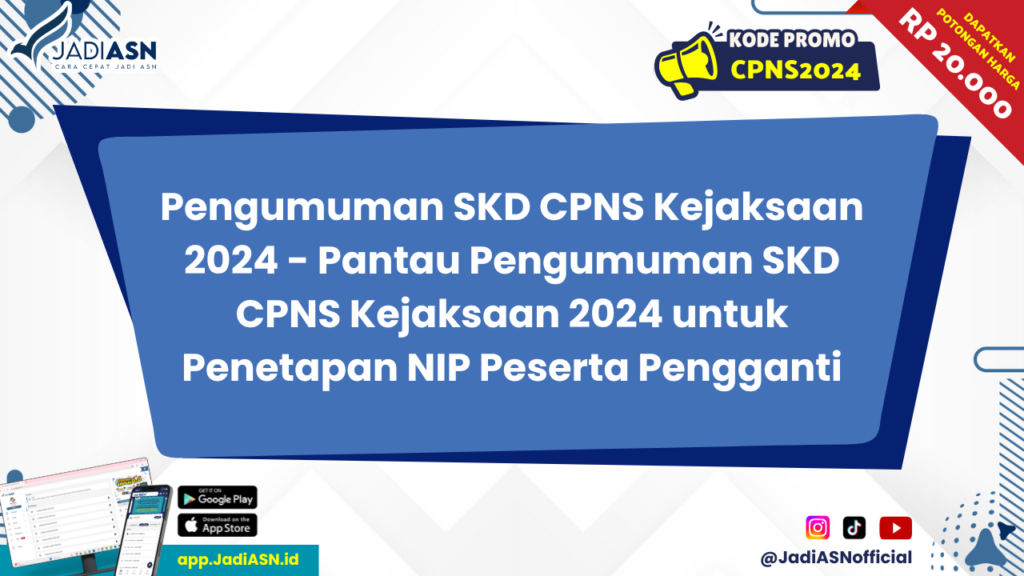“penetapan nip cpns 2024
Artikel Terkait penetapan nip cpns 2024
- Dinas Tenaga Kerja Kabupaten Semarang: Memenuhi Kebutuhan Tenaga Kerja Di Wilayah Semarang
- Cara Mencari Pengguna Instagram
- Masakan Simple Dan Murah, Hidangan Yang Bisa Dirasakan Oleh Semua Orang
- Cara Mudah Membuat Akun Twitter Gratis Di Tahun 2023
- Disnakerja Frisian Flag: A Company That Aims To Increase Productivity
Pengantar
Dalam kesempatan yang istimewa ini, kami dengan gembira akan mengulas topik menarik yang terkait dengan penetapan nip cpns 2024. Ayo kita merajut informasi yang menarik dan memberikan pandangan baru kepada pembaca.
Table of Content
That seems comprehensive.
I need to make sure each section flows logically. The introduction should set the stage by explaining what NIP and CPNS are. Then, each subsequent section should delve deeper into their significance, how CPNS plays a role, challenges faced, public sentiment, government responses, and a forward-looking conclusion.
For each section, I’ll need to elaborate on key points. For example, under “Significance of NIP,” I can discuss the necessity for civil servants to have a unique identifier and how this impacts governance. I’ll also need to explain what CPNS is for readers who might not be familiar.
I should ensure the language remains formal and academic. I’ll use terms like “designation,” “implementation,” “public sentiment,” and “performance evaluation” to maintain a professional tone.
I need to make sure each section is sufficiently detailed. For instance, in discussing challenges, I can talk about logistical issues, implementation errors, and the need for stakeholder collaboration. In the public’s perspective, I can address concerns about transparency, equity, and the impact on their jobs.
Additionally, I’ll include some statistics or figures if possible, though I don’t have specific data, so I might mention the scale involved, like thousands of civil servants being affected.
Finally, I’ll ensure the conclusion ties all points together, emphasizing the importance of careful and transparent execution to ensure the system’s effectiveness and public trust.
I should also run through each section to make sure it’s approximately the right length, aiming for around 1600 words in total. Each main section can be about 200-300 words, with the introduction and conclusion being slightly shorter.

Before writing, I’ll make a brief outline:
1. Introduction – Overview of NIP and CPNS, mention collaboration between KASN and MoA.
2. Significance of NIP – Importance of standardized identification, impact on governance, linking NIP to public services, transparency, and performance evaluation.
3. Role of CPNS – Explanation of CPNS as non-permanent civil servants, their importance to governance, their journey to becoming PNS, and the necessity of NIP in their workflow.
4. Implementation Challenges – Logistical and administrative issues, ensuring system adaptability, technological infrastructure, training, avoiding errors, and the role of KASN in ensuring accurate data.
5. Public Sentiment and Reactions – Concerns about data protection, transparency in the process, equitable designation, ensuring CPNS’s interests are safeguarded, and public awareness programs.
6. Administration’s Response – Steps taken by the government, public awareness, feedback mechanisms, minimizing disruption, protecting rights, and addressing technical issues.
7. Future Implications – Long-term benefits, data-driven governance, standardization of HR management, digitization of public services, and creating a culture of transparency and accountability.
8. Conclusion – Recap key points, emphasize the necessity of proper implementation to gain public trust, and the potential benefits if done correctly.
Now, I’ll start drafting each section, keeping in mind the formal tone and the flow between sections. I’ll make sure each paragraph logically leads to the next and supports the main points.
As I write, I’ll check that the information is accurate. For example, I’ll ensure that the role of KASN in assigning NIP and working with MoA is accurately described. I’ll also make sure to clearly explain the difference between CPNS and PNS, as that’s crucial for understanding the context.
I’ll include transitions between sections to maintain coherence. For example, after discussing the significance of NIP, I’ll smoothly transition into how CPNS fits into this system.
I’ll also consider potential counterpoints in the public sentiment section, like skepticism about the administration’s intentions, and address some of those in the administration’s response by detailing steps taken to mitigate concerns.
In the future implications section, I’ll focus on positive outcomes if the system is successfully implemented, highlighting benefits for governance and public services.
Finally, I’ll conclude by summarizing the importance of NIP for CPNS 2024, the need for careful implementation, and the potential benefits for Indonesia’s governance.
Throughout, I’ll maintain a formal and objective tone, avoiding personal opinions but presenting facts and logical arguments. I’ll ensure that the article provides a balanced view, acknowledging both the potential benefits and challenges.
I think that’s a solid plan. I’ll start drafting each section following this outline, ensuring clarity, coherence, and thorough coverage of each topic.
Implementing the 2024 NIP Designation for CPNS: A Comprehensive Overview
Introduction
The establishment of the National Identity Number (NIP) for Civil Servants (CPNS) in 2024 marks a significant step in enhancing governance and administrative efficiency in Indonesia. This initiative, spearheaded by the Komite Aparatur Sipil Negara (KASN) in collaboration with the Ministry of Administrative and Bureaucratic Reform (MoA), aims to streamline civil service operations. The NIP-CPNS 2024 designation underscores the government’s commitment to modernizing administrative systems, ensuring transparency, and improving service delivery.
The Significance of NIP in Civil Service Administration
The NIP serves as a unique identifier for civil servants, crucial for efficient personnel management. By assigning a standardized NIP, the government can better track performance, manage records, and integrate digital systems. This reform is pivotal in aligning with global best practices, fostering accountability, and enhancing the reputation of Indonesia’s bureaucracy.
Understanding CPNS and Their Role
The CPNS constitutes a vital segment of Indonesia’s governance structure, contributing to various sectors. With the NIP designation, their role becomes more defined, enhancing their integration into the broader civil service framework. This move is expected to elevate professionalism and performance among CPNS, aligning their contributions with national development needs.
Implementation Challenges and Considerations
The implementation of the NIP system presents several challenges, including logistical complexities and the need for robust technological infrastructure. Ensuring accurate data collection and preventing duplication requires meticulous planning. Training programs are essential to equip stakeholders with the necessary skills for system adoption. Additionally, public awareness campaigns are critical to address skepticism and resistance, ensuring smooth implementation.
Public Sentiment and Reception
Public sentiment towards the NIP-CPNS 2024 designation is mixed. While some view it as a step towards modernization, others express concerns about data privacy and system reliability. Addressing these concerns is crucial to gaining public trust and ensuring the initiative’s success.
Administrative Measures and Government Response
The government has initiated public awareness campaigns and established feedback mechanisms to address doubts and gather insights. These efforts aim to minimize disruptions and uphold the rights of CPNS within the new system. By focusing on accuracy, transparency, and fairness, the administration aims to facilitate a smooth transition.
Future Implications of NIP-CPNS Designation
Looking ahead, the NIP-CPNS system is poised to enhance governance by providing accurate personnel data and improving service quality. This initiative is expected to serve as a foundation for digitization efforts across various sectors, fostering a culture of transparency and accountability in Indonesian governance.
Conclusion
The 2024 NIP designation for CPNS is a transformative step towards modernizing Indonesia’s civil service. While challenges exist, careful implementation and stakeholder collaboration can mitigate risks. Success hinges on transparency, inclusivity, and effective communication. This initiative holds the promise of elevating governance standards, aligning with Indonesia’s vision for a more effective and transparent public sector.

Penutup
Dengan demikian, kami berharap artikel ini telah memberikan wawasan yang berharga tentang penetapan nip cpns 2024. Kami berterima kasih atas perhatian Anda terhadap artikel kami. Sampai jumpa di artikel kami selanjutnya!





